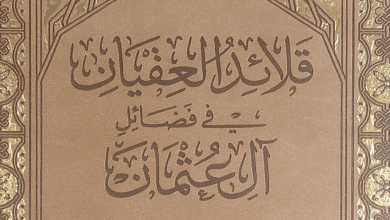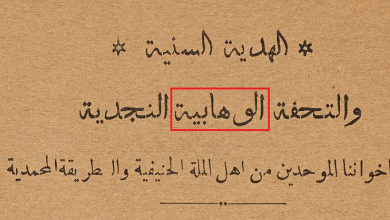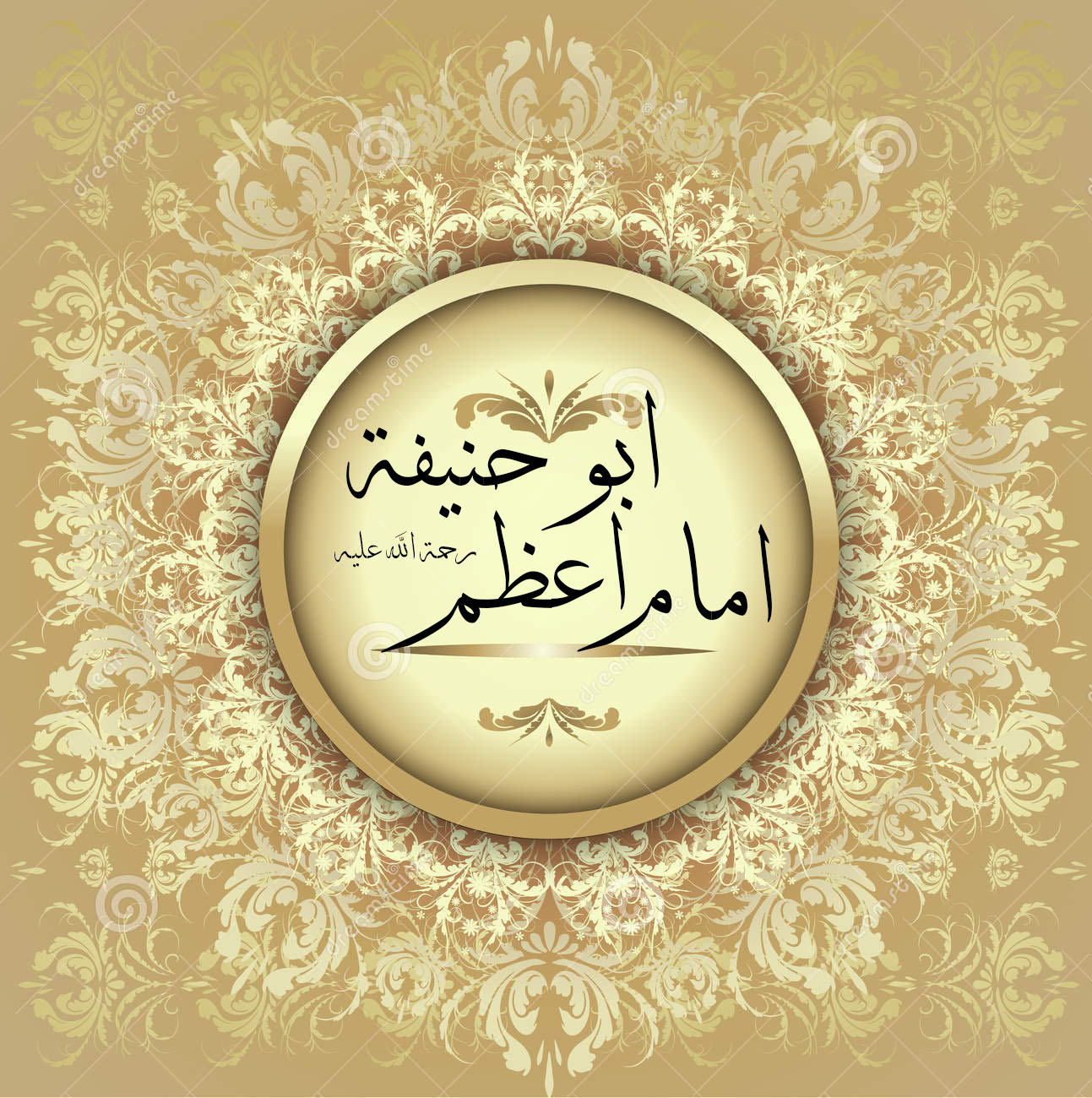Imam Abu Yusuf’s Powerful Memory & Profound Intellect
The following is an article on the memory of the Qadi, Imam Abu Yusuf Ya’qub ibn Ibrahim al-Ansari (d.182AH), the student of Imam Abu Hanifa (d.150AH). It is a translation of a chapter from Husn al-Taqadi fi Sirat Abi Yusuf al-Qadi (pp.14-17) by Shaykh Muhammad Zahid al-Kawthari (d.1371AH). The Maktaba al-Azhariyya li al-Turath edition was utilised for this translation – which contains numerous typographical errors due to which the original Arabic quotes have been checked and typed up from their primary sources and have been referenced in the footnotes. This article was translated as a response to some people who have attacked Imam Abu Yusuf’s status in the field of hadith, and more broadly, they attack the Hanafi school of Law as well as the Imams of the madhab and its adherents, accusing them of being weak in hadith.
Abu al-Faraj Ibn al-Jawzi, in a work of his, mentions Abu Yusuf as one of the hundred extraordinary individuals among the huffaz (prolific memorisers) of this ummah and mentions him in a manner of all-round strength in retention without restricting him merely to memorisation of hadith. He says that Abu Yusuf would memorise fifty-sixty hadith by hearing them only once and would then narrate them [from memory] along with their chains of transmission. This work [by Ibn al-Jawzi] is entitled Akhbar al-Huffaz and [the manuscript] is located in the Zahiriyya Library in Damascus, [it is complete] except that it is missing its first page.
In his book al-Intiqa’, Ibn ‘Abd al-Barr narrates: Ahmad ibn Muhammad ibn Ahmad informed us and said: Ahmad ibn al-Fadl ibn al-‘Abbas informed us and said: Muhammad ibn Jarir al-Tabari informed us and said:
“Abu Yusuf, Ya’qub (ibn Ibrahim), the Qadi, was a faqih (jurist), an ‘alim (erudite scholar), and a hafiz (prolific memoriser of hadith). It has been mentioned that he was well known for his memorisation of hadith and that he would frequent a hadith scholar and memorise fifty-sixty hadith [in a single sitting]. He would then stand and dictate them to the people. He knew a great number of hadith.”[1]
In Akhbar al-Imam Abi Hanifa wa Ashabih, al-Saymari narrates with his chain of transmission going back to al-Hasan ibn Ziyad that he said:
“We went for Hajj with Abu Yusuf and he fell ill on the way. We stopped to rest at Bi’r Maymun[2], then Sufyan ibn ‘Uyayna came to visit him. He (Abu Yusuf) said to us: ‘Take the hadith of Abu Muhammad (Sufyan ibn ‘Uyayna),’ thus he narrated forty hadith to us. When Sufyan got up and left, Abu Yusuf said to us: ‘Take what was narrated to you,’ then he repeated the forty narrations from memory despite his old age, his weakness, his illness and his being preoccupied with his journey.”[3]
Al-Muwaffaq al-Makki narrated with his chain of transmission going back to al-Hasan ibn Abi Malik, that he said:
“We would frequent [the gatherings of] Abu Mu’awiya on fiqh related hadith from the narrations of Hajjaj ibn Artah. Abu Mu’awiya said to us: ‘Isn’t Abu Yusuf al-Qadi [based] near you?’ We answered in the affirmative. He replied: ‘Have you left behind Abu Yusuf (and come) to write from me!? We would frequent [the gatherings of] al-Hajjaj ibn Artah and Abu Yusuf would memorise while al-Hajjaj would dictate to us. Then when we left, we wrote from the memory of Abu Yusuf (may Allah have mercy on him).'”[4]
With his chain of transmission going back to Yahya ibn Adam, al-Muwaffaq also mentions:
“It was said to Harun al-Rashid, who was a faqih and an ‘alim himself: ‘You have certainly raised Abu Yusuf beyond measure and have given him a high ranking and lofty position. How has he acquired such a status from you?’ He replied: ‘I did so based on my knowledge and recognition of him, as well as testing him. I swear by Allah, I have not tested him in any field from the many fields of knowledge except that I have found him to be accomplished therein. He would indeed frequent [the scholars] with us in [search of] hadith. We would write [everything down during lessons] and he wouldn’t (ie. he would memorise everything). When we would rise from the gathering, the people of hadith would gather around him and they would correct their books from his memory. He has indeed attained the utmost degree in fiqh which none (from the people of his era) have reached. Hence the most eminent of people is small to him and the greatest faqih of the people is of low standard to him. Despite his preoccupation with our (governmental) work, he sits in the company of people without any books and prior research, then he asks: ‘What do you seek (assistance regarding)?’ and they reply referring to such and such chapter. Without even a moment of thinking, he begins speaking about it, and with his intuitive insight, he presents something so profound, the likes of which the scholars of his era are incapable of producing. Besides all of this, he has integrity and uprightness in methodology as well as preservation of the din. Bring me someone like him.'”[5]
Consider deeply this description of Abu Yusuf by Amir al-Mu’minin Harun al-Rashid for he was indeed comprehensive and attentive [in his description]. Dawud ibn Rashid said:
“If Imam Abu Hanifa did not have a single student besides Abu Yusuf, he would surely possess something of excellence above all people [the likes of which none else has]. Whenever I saw Abu Yusuf speak regarding a field from the fields of knowledge, it was as though he was scooping water from an ocean. He truly understands hadith, fiqh and kalam as they should be understood, and none of this was difficult for him.”[6]
Hilal ibn Yahya al-Basri, who is well known as Hilal al-Ra’y, said:
“Abu Yusuf would memorise the explanation of the Qur’an, the military expeditions of the Prophet sallallahu ‘alayhi wa sallam, and Arab history. Fiqh was [merely] one of his [many] fields of expertise.”[7]
Meaning: his immense knowledge of fiqh is something everyone is already aware of. In a report mentioned by al-Dhahabi, Yahya ibn Khalid said:
“Abu Yusuf came to us, and Fiqh was his least proficient area of expertise – whereas it is his Fiqh which spread far and wide across the globe.”[8]
Yahya ibn Ma’in said, as reported by Ibn Abi al-‘Awwam, on the authority of al-Tahawi:
“I have not seen anyone from the people of juristic opinion who is more reliable in hadith than Abu Yusuf, or possessing greater memorisation ability than him, or more rigorous than him in narrating what is authentic.”[9]
In Tadhkirat al-Huffaz, al-Dhahabi has written a biography of Abu Yusuf and counted him among the proficient memorisers (huffaz) of hadith, and he has also authored a piece exclusively on the virtues of Abu Yusuf, may Allah be pleased with him, and this work has been printed. Al-Saymari narrates via al-Tahawi from ibn Abi ‘Imran:
Abu Yusuf came to see al-Hajjaj ibn Artah while he was the Qadi of Kufa and asked him regarding the unborn child of a slave girl, to which al-Hajjaj said: “In it is a twentieth [of the blood money] of its mother.” Abu Yusuf asked: “What have you based this on?” He answered: “By analogy with the unborn child of a free woman.” Abu Yusuf asked: “Is it not the case that if the unborn child of a free woman emerges lifeless from the mother [ie. she has a miscarriage] due to being struck, then the attacker will have to free a slave, and if the child emerges alive and then passes away, then the attacker will have to pay blood money?” Al-Hajjaj replied: “Yes.” Abu Yusuf said: “You have muddled them up. You have actually made it so that the lifeless child born to a free woman is more than what is obligatory if it was born alive and passed away thereafter, because the amount while alive is two dirhams and the amount of its mother is one hundred dirhams.” Al-Hajjaj said to him: “When it is such [question], then do not ask me of it in the presence of the people my dear son.”[10]
With his chain of transmission, al-Saymari also narrates that Abu Yusuf asked Rabi’a al-Ra’y (the Shaykh of [Imam] Malik):
“What do you say regarding a slave who is owned jointly by two people and one of them sets him free?” He replied: “His freeing will not take effect.” Abu Yusuf asked: “Why?” He said: “Because this is a detriment and it has been related from the Prophet sallallahu ‘alayhi wa sallam, that he said:
Abu Yusuf then asked: “What if the other frees him thereafter?” He replied: “His freeing will take effect”. Abu Yusuf said: “You’ve contradicted yourself. If the first statement is void and freeing does not occur by it, then the second has freed him while he is still a slave!” thus Rabi’a became silent.[11]
Similar has been related about Abu Yusuf by al-Tahawi from ibn Abi ‘Imran, who related it from ibn Sama’a. This much is sufficient in highlighting the strength of his memory and the brilliance of his intelligence.
[1] Ibn ‘Abd al-Barr, al-Intiqa’ fi Fada’il al-A’immat al-Thalathat al-Fuqaha’ (1417), Beirut: Dar al-Basha’ir al-Islamiyya, ed. Abu Ghudda, p.330.
[6] Ibid.






